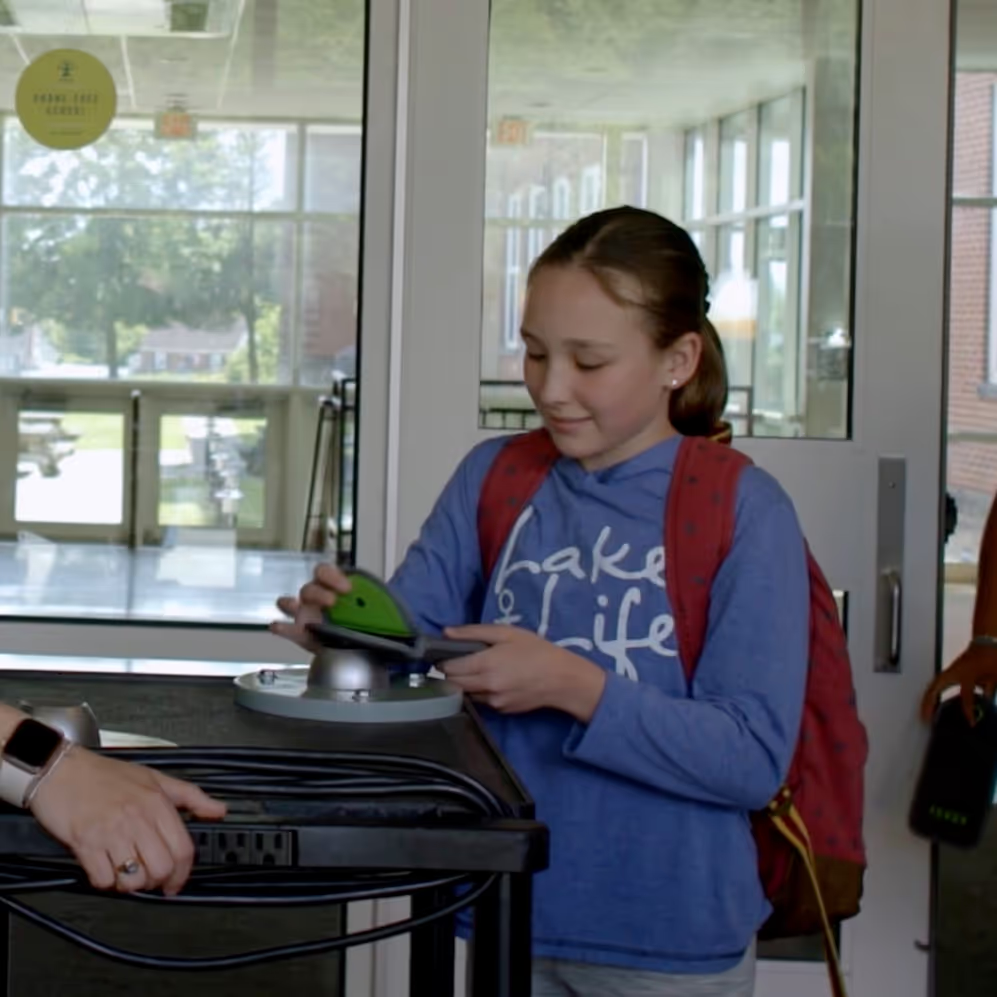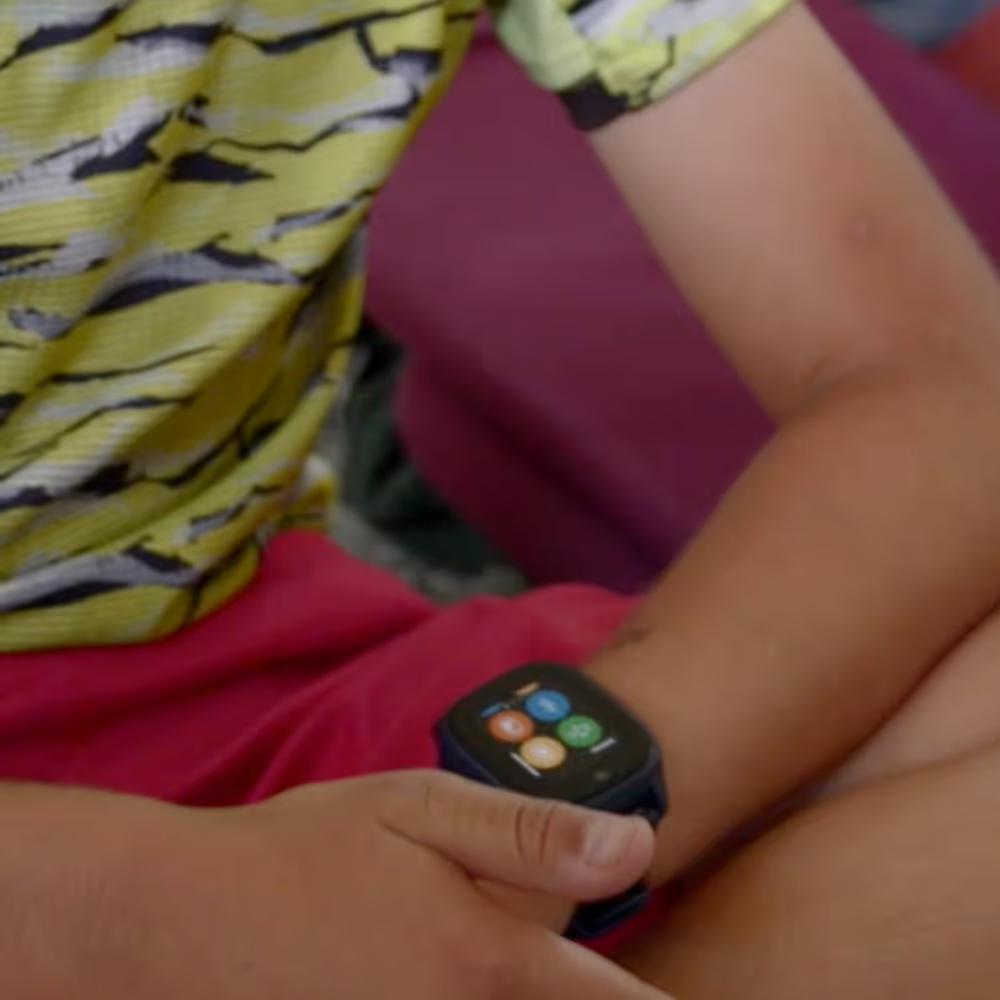


Check your phone while driving? 56% of parents say they do.
Check your device during conversations with your family? 77% of parents say their teens do and 41% of teens say their parents do.
Listen to music while doing homework? Browse online and text friends while watching tv? Check and respond on multiple screens and devices at once?
Multitaskers everywhere, beware! It feels so productive, but is it?
Stanford University researchers have observed that media multitaskers are more easily distracted and are less efficient at “task-switching” and at performing tasks that require cognitive control.
University of London researchers found that multitasking with electronic media temporarily lowered IQ more than smoking marijuana or missing a night of sleep. Others are investigating whether there are more long-term cognitive disadvantages and whether multitasking can even diminish empathy and emotional development.
In Screenagers, MIT professor Sherry Turkle and Seattle Children’s Hospital pediatrician Dimitri Christakis both comment on the myth of multitasking efficiency.
So why do it? Instant gratification? And here’s where we find ourselves back at the self-control conversation—practicing self-control to be able to retrain and regain our ability to concentrate deeply and boost both the quality and quantity of our accomplishments.
· Where and when do you multitask?
· What are the tasks that you do simultaneously?
· How does it feel when you switch from homework to social media or other screen activity and back again? How does it feel afterward?
· Is multitasking a purposeful habit that helps you, or has taken hold of you?
· What would happen if you try to avoid multitasking in situations where you usually would?
Learn more about showing our movies in your school or community!
Join Screenagers filmmaker Delaney Ruston MD for our latest Podcast

Learn more about our Screen-Free Sleep campaign at the website!
Our movie made for parents and educators of younger kids
Learn more about showing our movies in your school or community!
Learn more about showing our movies in your school or community!
Join Screenagers filmmaker Delaney Ruston MD for our latest Podcast

Learn more about our Screen-Free Sleep campaign at the website!
Our movie made for parents and educators of younger kids
Join Screenagers filmmaker Delaney Ruston MD for our latest Podcast
As we’re about to celebrate 10 years of Screenagers, we want to hear what’s been most helpful and what you’d like to see next.
Please click here to share your thoughts with us in our community survey. It only takes 5–10 minutes, and everyone who completes it will be entered to win one of five $50 Amazon vouchers.
Check your phone while driving? 56% of parents say they do.
Check your device during conversations with your family? 77% of parents say their teens do and 41% of teens say their parents do.
Listen to music while doing homework? Browse online and text friends while watching tv? Check and respond on multiple screens and devices at once?
Multitaskers everywhere, beware! It feels so productive, but is it?
Stanford University researchers have observed that media multitaskers are more easily distracted and are less efficient at “task-switching” and at performing tasks that require cognitive control.
University of London researchers found that multitasking with electronic media temporarily lowered IQ more than smoking marijuana or missing a night of sleep. Others are investigating whether there are more long-term cognitive disadvantages and whether multitasking can even diminish empathy and emotional development.
In Screenagers, MIT professor Sherry Turkle and Seattle Children’s Hospital pediatrician Dimitri Christakis both comment on the myth of multitasking efficiency.
So why do it? Instant gratification? And here’s where we find ourselves back at the self-control conversation—practicing self-control to be able to retrain and regain our ability to concentrate deeply and boost both the quality and quantity of our accomplishments.
· Where and when do you multitask?
· What are the tasks that you do simultaneously?
· How does it feel when you switch from homework to social media or other screen activity and back again? How does it feel afterward?
· Is multitasking a purposeful habit that helps you, or has taken hold of you?
· What would happen if you try to avoid multitasking in situations where you usually would?
Sign up here to receive the weekly Tech Talk Tuesdays newsletter from Screenagers filmmaker Delaney Ruston MD.
We respect your privacy.
Check your phone while driving? 56% of parents say they do.
Check your device during conversations with your family? 77% of parents say their teens do and 41% of teens say their parents do.
Listen to music while doing homework? Browse online and text friends while watching tv? Check and respond on multiple screens and devices at once?
Multitaskers everywhere, beware! It feels so productive, but is it?
Stanford University researchers have observed that media multitaskers are more easily distracted and are less efficient at “task-switching” and at performing tasks that require cognitive control.
University of London researchers found that multitasking with electronic media temporarily lowered IQ more than smoking marijuana or missing a night of sleep. Others are investigating whether there are more long-term cognitive disadvantages and whether multitasking can even diminish empathy and emotional development.
In Screenagers, MIT professor Sherry Turkle and Seattle Children’s Hospital pediatrician Dimitri Christakis both comment on the myth of multitasking efficiency.
So why do it? Instant gratification? And here’s where we find ourselves back at the self-control conversation—practicing self-control to be able to retrain and regain our ability to concentrate deeply and boost both the quality and quantity of our accomplishments.
· Where and when do you multitask?
· What are the tasks that you do simultaneously?
· How does it feel when you switch from homework to social media or other screen activity and back again? How does it feel afterward?
· Is multitasking a purposeful habit that helps you, or has taken hold of you?
· What would happen if you try to avoid multitasking in situations where you usually would?

This year, millions of students are experiencing a major shift: school days without phones, smartwatches, or other personal devices. Today we explore the wins, hurdles, and solutions helping schools succeed. We also share our resources that you can use to support technology policy changes in your schools.
READ MORE >
I recently sat down with middle school principal Zach at his school in Washington State. We talked about the challenges Zach and his team faced in his early years as principal when students used phones during school, and how he brought about a powerful transformation by having phones and smartwatches put away in locked pouches for the whole school day. In today’s blog, to raise awareness of the challenges, I share five real examples from Zach of the troubling ways students use phones at school to be unkind.
READ MORE >
It is with great pleasure that I share with you today a piece that Lisa Tabb and I did for Jonathan Haidt's (Author of The Anxious Generation) and researcher Zack Rausch's Substack blog — After Babel. In it, we discuss the rise in use of smartwatches in elementary schools and the problems they pose. There is a real cost to arming (pun intended) our kids with these devices and sending them to school. Now is the time to stop and fully address this topic and ensure that schools become smartwatch and phone-free.
READ MORE >for more like this, DR. DELANEY RUSTON'S NEW BOOK, PARENTING IN THE SCREEN AGE, IS THE DEFINITIVE GUIDE FOR TODAY’S PARENTS. WITH INSIGHTS ON SCREEN TIME FROM RESEARCHERS, INPUT FROM KIDS & TEENS, THIS BOOK IS PACKED WITH SOLUTIONS FOR HOW TO START AND SUSTAIN PRODUCTIVE FAMILY TALKS ABOUT TECHNOLOGY AND IT’S IMPACT ON OUR MENTAL WELLBEING.
